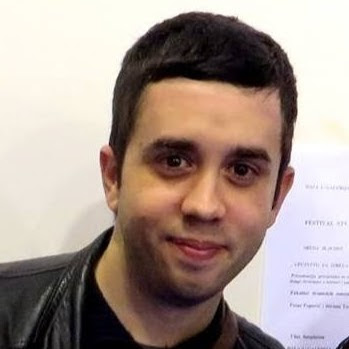If there’s one thing INFJs don’t like, it’s conflict. Our personality is peaceful by nature, and everything that even resembles conflict we avoid by default. INFJs are diplomats with a kind and understanding heart. We believe that every situation can be resolved without conflict. However, in order to handle and face an INFJ conflict, we must first recognize where it comes from.
The inner INFJ conflict
Conflict only gives birth to unnecessary harsh language and actions. It fuels negative energy among people. Just imagine the effects it can have on extroverts. Now multiply that by a hundred when it comes to INFJs.
You might think that because I’m a certified INFJ coach and a writer, I’m in complete control over every INFJ conflict situation I face. However, the truth is…
I easily get scared when facing conflict. I often thought that walking away was always the best solution. That’s exactly what I did. But I only made the situation worse. For years I blamed myself for being bullied in high school, never allowing myself to acknowledge that it wasn’t my fault. I thought I was the source of conflict because I was quiet and always buried deeply in my books.
Humiliation became my everyday routine during the four years of high school, because I was afraid of starting a situation that could potentially turn into a conflict. It wasn’t until I graduated that I realized how wrong I was for thinking it was my fault.
I discovered that conflict doesn’t come from the outside. It comes firstly from within. In one of my favorite INFJ conflict examples, I’ll demonstrate how I managed to handle it using that inner realization.
Handling conflict, the INFJ way
When I was at a regional conference a few years back, there were a lot of politicians, actors, and people from the public scene. Despite the fact that I was part of the organizational team, like a true INFJ, I was standing near the exit and observing.
Without warning, an unpleasant conflict started between several participants. Instead of exchanging thoughts, they started arguing and upsetting everyone else present. The diplomat in me kicked in, and I had to do something to prevent further escalation.
Using the strategies I share below, I was able to help resolve the situation and restore the peace.
4 ways INFJs can resolve conflict:
1. Maintain soothing voice tonality.
Whatever happens, don’t raise your voice. It’s a scientific fact that a human mind reacts defensively when hearing a loud sound. Remain calm, even if you don’t receive the same respect in return. You would be surprised how well all sides will react when they hear your understanding words.
2. Listen to what everyone says.
If you want to handle a conflict peacefully as an INFJ, you’ll need to listen to everyone’s side of the story. It will only take few seconds for everyone around you to calm down when they notice you paying attention to what they say. In today’s world, people only listen to reply. Being an INFJ peacemaker means listening with the intention to understand.
3. Don’t take sides, acknowledge them.
I cannot emphasize enough how important this is. Of course, you’ll immediately recognize who is right. But your goal is to avoid further conflict, so only acknowledge what everyone says and find common ground. This doesn’t mean you shouldn’t say your opinion, far from it. But the best course of action is to remain neutral and consider everyone’s interests.
4. Combine everyone’s thoughts into a solution.
Use your natural INFJ analytical skills to consider all points of view and reach a conclusion. Think about it as a puzzle or a game. The participants have all the pieces, but don’t know how to put them together. You’re there to help them make sense of it all.
It’s amazing how a soothing voice, listening ear, and unconditional attention can neutralize conflict. This is why diplomacy is at the very core of an INFJ. We don’t know all the answers, but peace is our element. When a conflict arises around an INFJ, you will know how to turn the tide.
Turning the tide
When an INFJ resolves a conflict, this is a priceless and incredibly proud moment in our eyes. It’s the proof that we made a difference using the peace-keeping skills we are known for.
You need to be who you are, even in an INFJ conflict, because people want to hear the voice of empathy and understanding. Don’t underestimate your ability to make a difference, because you are that compassionate INFJ peacemaker people need to hear.
Despite the fact that INFJs despise conflict of any kind, you would be surprised how well we can handle it. We would rather avoid it of course, but here’s the catch.
The sense of justice is an extremely powerful emotion for INFJs. It has a healing power that can stop almost every type of conflict.
Use your INFJ peacemaker trait to approach any conflict with confidence. You can easily handle conflict if you remember these four things: attention, listening, calmness, and acceptance.
Observe the positive change these steps create and be proud of yourself for using them to bring peace. Even when you face conflict as an INFJ, remember that you have everything within you to resolve it.
What are your thoughts and experiences with conflict? How do you handle it? Feel free to share what you think in the comment section, I would love to hear from you. ☺
Join Our INFJ Tribe
If you’re interested in connecting with other INFJs from around the world, join Introvert Spring’s private INFJ forum. We are truly a buzzing community! Join today, and you’ll receive our 20-page INFJ Relationship guide as a gift. You’ll also gain access to unique INFJ blog posts, member events, and videos.
Love,
Marko













1) Yes, and I’d add that it’s important to remember being too passive, or at least perceived as such, can actually make a conflict worse. Sounding caring/soothing/etc. can often be taken as disingenuous or patronizing. Rather than being soothing, I’d recommend being neutral or measured.
A lot of data on “mirroring” is very compelling and I will say that in my job I am very often in the role of conflict mediator so anecdotally I have found much better results from not being “on the other side” in my communication style from those that I am dealing with. I’m certainly not suggesting becoming belligerent or shouting it the conflict is at that stage, but being closer to where “they” are emotionally and tonally is something to consider.
2) yes, Yes, YES!
3) If you are truly following #2 then this should follow, but the magic is certainly in finding the common ground and not alienating either side.
4) As an INFJ, and in the past a major conflict avoider, this is the only “fun” part of conflict for me. When able to resist the temptation of avoidance, the satisfaction from finding a solution usually far outweighs the stress of the conflict resolution process.
Thank you so much Derek for sharing your insightful thoughts and opinion. 🙂
I agree with Derek’s point on patronizing. I’ve been on the receiving end of a suspected INFJ’s patronizing, and that angers me more than the conflict itself. My goal in conflict is to show sincere interest in each point of view. Hopefully it doesn’t appear to be patronizing.
I’ve been avoiding conflict–this article is a great reminder to use my strengths when I’m in direct conflict and as a mediator. Attention, Calmness, Listening, Acceptance. –I need to hang these on my wall at work as a reminder.
My issue with conflict starts with me not being able to even respond without almost crying and if I have to pursue it any further crying…..No matter how prepared or determined I am to face the conflict, it is never successful, which is the worse, especially in work situations when I want to stand up for myself! Has anyone found success in controlling their emotions during these situations?
I understand you Melissa. There’s nothing wrong in showing your emotions through tears, even if you find yourself in a conflict, but you need to establish a boundary, for yourself, so that you can protect yourself. I’m still in the process of learning about boundaries, but I so much appreciate when I receive one, because I have a chance to improve respect and understanding towards someone. It’s not about controlling your emotions, you are an INFJ, and emotions make you who you are. It’s important that you accept those boundaries, whether you create or receive them, because they are there to help you. 🙂
Hi Melissa, I completely understand your dilemma. When I first became a supervisor I dreaded confrontation/conflict with those I supervised. If I knew a confrontation was soon to happen, I would write down my thoughts — think of the persons responses and how I would reply.. I got pretty good at figuring how each individual would reply. In time, it became less and less difficult. I also took a course called “dealing with difficult people”. The course taught you to decipher the personality you were dealing with an how to best communicate for a good result. also, perhaps join a debate club or course where you are required to debate a point — inevitably you will disagree at one point– you will find it more comfortable the disagree or confront if you have more practice .. I started writing my conversations in 2010 and I am pretty comfortable with conflict now — but I always need to be prepared .. if I am blind-sided — I can fail miserably.
Two INFJ’s in a relationship…rare as it might seem and deeemed the ultimate partners…In my situation…my partner was quick to identify his issues with me from the onset…raised voice, repetively raising the same issues (he was aware of them before we even met) and quickly turned me off from any healthy conflict resolution, as he was a right fighter and chose not to listen to my point of view. Slowly it eroded my spirit, as I tend to avoid confrontations and chose voicing my issues carefully. Some of the issues seemed ludicrous, yet they took their toll…subtle put downs were also in his store house of ammunition, as were his claims that I couldn’t take a joke. I take offence when I read that by slamming the door on a relationship is immature, only because I view it as a sign of strength. After putting up with 3 days of his sullen mood, he finally opened up to his concerns. Once again, his tone and mannerisms were not conciliatory…he had drawn his conclusions and benevolently suggested I stay the night but it was over. He claimed he loved me and that we can remain friends, as this was the situation with his exes…seriously, who buys into suggestion?
Thank you for sharing this! I hear you, and I’m sorry you had to go through all this… Indeed, we need to take care of yourselves the best way we know how.
These are great tips! I’m going to write them down and hang them up where I can be reminded on a daily basis.
A couple of months ago, I was telling my daughter about a falling out I had with someone close to me. I was very upset but I avoided confronting them. One of the most amazing things my daughter did was to first “validate my feelings” without “justifying” the other person’s hurting me. I let the situation go, because, you know, INFJs “need to grow thicker skin,” but because of my daughter’s validation, I was able to have peace. Validation goes a long way during conflict resolution. In the future though, I will utilize these steps. Thanks!
I’m so glad you like the tips Stephanie! Also, what your daughter said is so wonderful! Wow! Amazing way of thinking! 🙂